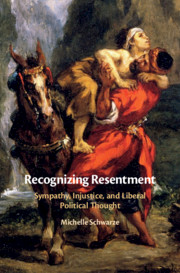
- Cited by 6
-
Cited byCrossref Citations
This Book has been cited by the following publications. This list is generated based on data provided by Crossref.
Wolf, Brianne 2022. Adam Smith’s Cosmopolitan Liberalism: Taste, Political Economy, and Objectification. Polity, Vol. 54, Issue. 4, p. 709.
Studebaker, Benjamin M. 2023. Legitimacy crises in embedded democracies. Contemporary Political Theory, Vol. 22, Issue. 2, p. 230.
Dege, Carmen Lea 2024. Shades of Complaint: Towards a Feminist Political Theology of Anger. Political Theology, Vol. 25, Issue. 6, p. 598.
Ota, Hiroyuki 2024. Joseph Butler. p. 97.
Kimiya, Masahiro 2024. Joseph Butler. p. 79.
Zubia, Aaron Alexander 2025. The Development of Public Conscience: Hume’s Third Way Between Hobbes and Locke. Political Theory, Vol. 53, Issue. 1, p. 62.
- Publisher:
- Cambridge University Press
- Online publication date:
- October 2020
- Print publication year:
- 2020
- Online ISBN:
- 9781108778473


